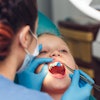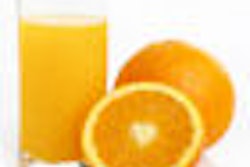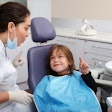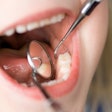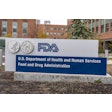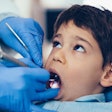
WASHINGTON (Reuters), April 30 - Sugary foods and drinks and nonfluoridated bottled water may be helping to rot the teeth of more young U.S. children, reversing four decades of progress against tooth decay, U.S. health officials said on Monday.
An estimated 28% of U.S. children ages 2 to 5 had a cavity in at least one baby tooth between 1999 and 2004, the National Center for Health Statistics said. This compared to a 24% rate from 1988 to 1994.
Fewer older children and adults had tooth decay, the report found.
"The main finding is that tooth decay is rising in our preschool children," said Dr. Bruce Dye, a dentist and epidemiologist with the center, which is part of the Centers for Disease Control and Prevention.
Dye cited several likely factors, including parents serving young children more prepackaged foods with high sugar content, more sugary juices and sodas and more bottled water, much of which is not treated with fluoride.
Many experts credit fluoridation of public water supplies with driving down tooth decay starting in the middle of the 20th century.
"One of the interesting paradoxes of this is that we've actually had expansion in community water fluoridation in the United States over this time period," Dye said in a telephone interview.
"However, we've also had tremendous growth in consumption of bottled water, probably the majority of which is not fluoridated."
Just 21% of children ages 6 to 11 had tooth decay during the 1999-2004 survey period, down from 25% a decade earlier, the survey found.
Among those ages 12 to 19, the rate fell to 59% from 68%.
Dye said it is not clear why tooth decay rose among the younger children but not among the older children.
Gum disease rates improved considerably, falling to 17% from 27% among people 65 and older.
Just 5% of people ages 20 to 64 had gum disease, compared to 10% a decade earlier, the report said. The percentage of people 65 and older with complete tooth loss fell to 27% from 34%, it said.
Copyright © 2007 Reuters Limited. All rights reserved. Republication or redistribution of Reuters content, including by framing or similar means, is expressly prohibited without the prior written consent of Reuters. Reuters shall not be liable for any errors or delays in the content, or for any actions taken in reliance thereon. Reuters and the Reuters sphere logo are registered trademarks and trademarks of the Reuters group of companies around the world.
